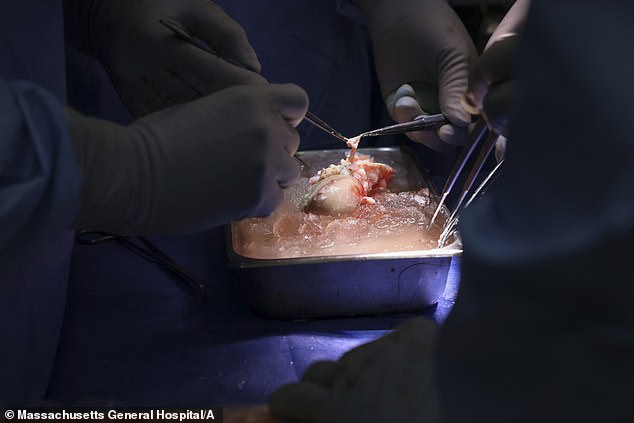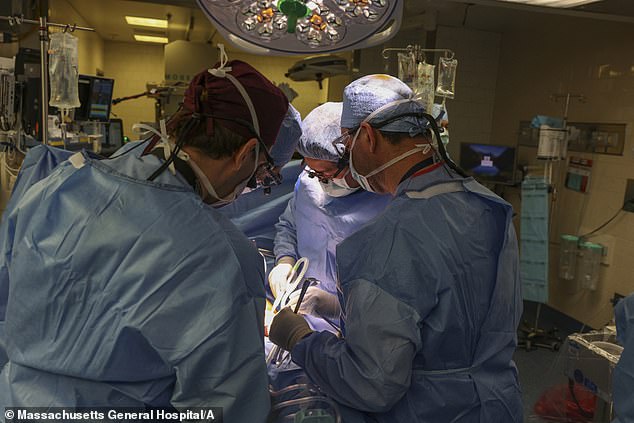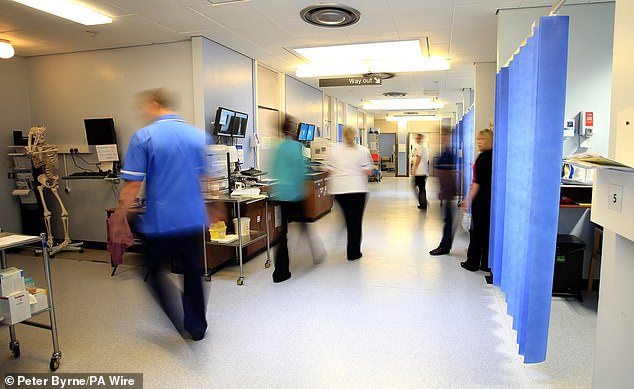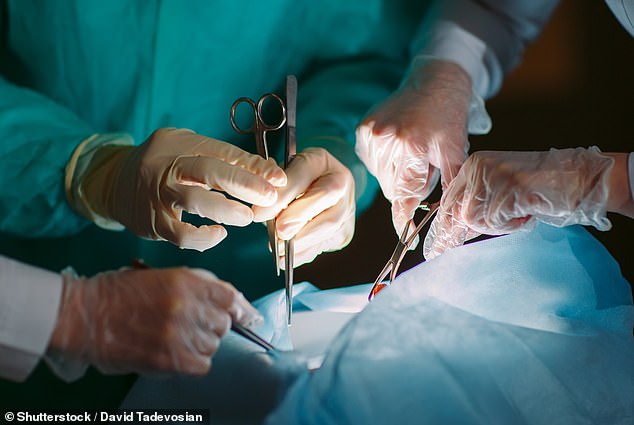More patients than ever are desperately waiting for a new kidney.
According to the latest figures, there are 10 percent more people on the waiting list for a transplant than a year ago.
Around six people a week in the UK die waiting for a kidney transplant, often after spending several years on dialysis.
But the real figure could be higher, as hundreds more specimens are removed from the list each year because their deteriorating health makes them unsuitable.
The reason is simple: there is a chronic shortage of kidneys from living or deceased donors, resulting in demand far outstripping supply.
This is compounded by skyrocketing obesity levels in the UK, which will result in hundreds of thousands more patients suffering from kidney disease over the next decade.
More patients than ever are now desperately waiting for a new kidney. According to the latest figures, there are 10 percent more people on the waiting list for a transplant than there were a year ago (file image)
Obesity (defined as a BMI of 30 or more) carries a nearly four-fold increased risk of end-stage renal disease compared with people within the normal range. So what is the solution?
As a researcher exploring alternative ways to obtain organs for transplant, I have taught and written about xenotransplantation: the use of animal cells, tissues, and organs in human patients.
This year, in a pioneering operation, a 62-year-old man in the US became the first living person to receive a genetically modified kidney from a pig.
The operation seemed a success, but the patient died in May, so it could be years before we know whether this method is safe and effective.
What we do know is that human organ transplantation is the standard treatment for end-stage renal disease.
Unlike many other types of organ donation, it is possible to donate a kidney while you are alive because you only need one of the two you have to survive.
But how can we make it more available?
A voluntary consent system is in place in all parts of the UK. Every adult is considered to have agreed to be an organ donor after their death, unless they have registered their decision not to donate. However, there are still not enough of these.
But we could increase availability by financially compensating those who choose to donate – in other words, by paying them.
This is currently illegal in the UK and some people will be horrified by a cash-for-kidneys scheme.

This year, in a groundbreaking operation, a 62-year-old man in the United States became the first living person to receive a genetically modified kidney from a pig. Pictured: Surgeons at Massachusetts General Hospital in Boston preparing the pig kidney for transplant in March 2024

Surgeons perform the world’s first genetically modified pig kidney transplant into a living human at Massachusetts General Hospital in Boston on March 16, 2024.
What I am proposing is not a backdoor scam, but a regulated system whereby the NHS would pay living kidney donors.
Donating a kidney involves general anesthesia, a three- to five-day hospital stay, and a recovery period of up to three months. It is a fairly safe operation, although not without risks.
Receiving payment would be a fairer way to compensate donors for the risk they accept, attract more donors and raise awareness of the need for more organs.
I propose a “monopsony” system, where the NHS is the sole “buyer”. Living donors could choose to accept payment or not.
This would exclude private racketeers, as the NHS would not actively offer to buy kidneys, but would offer a trade-off option in exchange for individual and social good.
So how much should we pay? I think £35,000 tax-free might be an appropriate amount. This figure is just above the average full-time annual income in the UK in 2022 of £33,000 and would reflect the generosity of the donor.
We need to know what public sentiment is first, but one US study found that cash incentives increase the likelihood that people will donate – and not just among those in need of cash.
The benefits could be huge: shorter waiting times for transplants, less pressure on dialysis services and fewer deaths among those waiting. Kidney dialysis costs the NHS £34,000 a year per patient. Given that there are many years of waiting for an organ, that’s a lot of money.

In the UK, around six people die every week waiting for a kidney transplant, often after spending several years on dialysis. But the real figure could be higher, as hundreds more people are taken off the list each year because their declining health makes them unfit (file image)
But does paying devalue the act of donating?
No, because compensating people for doing good things and accepting some risk in the process does not diminish the good or make the payment immoral.
It would still be illegal for a person to pay someone else for their kidney. The process would be overseen by the Human Tissue Authority, the independent regulatory body that ensures human tissue is used ethically.
Given the organ shortage, I truly believe it is time we paid living kidney donors, once and for all treating donors more fairly, increasing the number of organs available and helping to save more lives.
- Daniel Rodger is a Senior Lecturer in Surgical Practice at the Institute of Health and Social Care, London South Bank University.
AS TOLD TO ANGELA EPSTEIN

